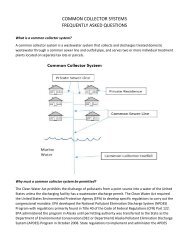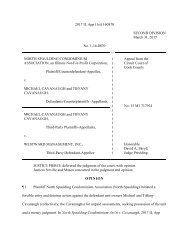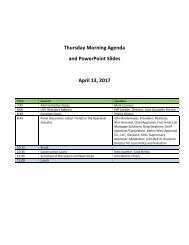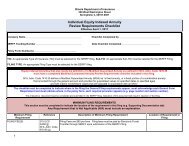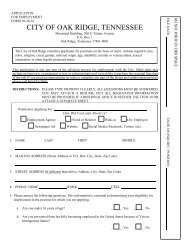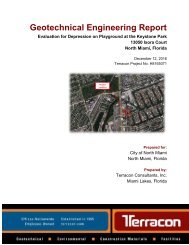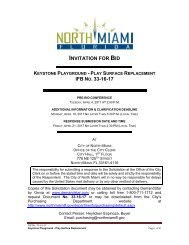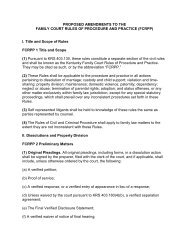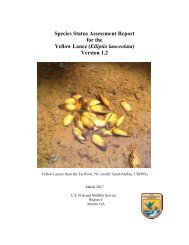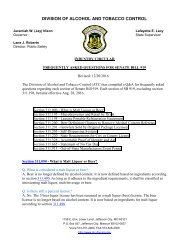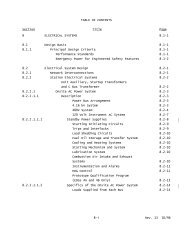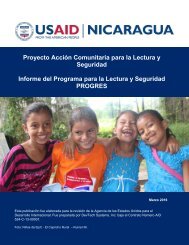COMMUNITY DISPUTE RESOLUTION IN TIMOR-LESTE
PA00MJQC
PA00MJQC
You also want an ePaper? Increase the reach of your titles
YUMPU automatically turns print PDFs into web optimized ePapers that Google loves.
convicted of a criminal offence have a right to appeal. 91 It also requires that a person may not be<br />
tried more than once in respect of the same conduct. 92 Currently neither of these requirements<br />
can be guaranteed where a sanction is imposed for breach of a local regulation. No possibility of<br />
appealing exists. And since many tara bandu cover conduct which is already criminalized under<br />
the Penal Code, it is also possible that a person could be dealt with twice in respect of the same<br />
conduct: once locally and once in the formal system.<br />
In addition to these human rights questions there are other causes for concern about the use of local<br />
regulations. Many such regulations envisage the collection of fines by local authorities but most do<br />
not deal with how the proceeds are to be used or recorded. 93 In Ermera, the local informal police<br />
(kablehan) who enforce the Ermera tara bandu, even collect a payment directly from a person accused<br />
by them of a violation. 94 These procedures clearly create a risk of corruption and abuses of power.<br />
There are therefore a number of reasons for concern about the use of local regulations to criminalize<br />
certain types of conduct. While this practice certainly may have the possibility to reduce community<br />
conflict, 95 communities and those working with them should ensure that their activities comply with<br />
Timorese law and international human rights standards.<br />
V. OPTIONS AND PROPOSALS FOR REGULAT<strong>IN</strong>G <strong>IN</strong>FORMAL JUSICE MECHANISMS<br />
UNTAET-era experiences in utilizing the informal justice system<br />
Indonesia’s withdrawal in 1999, and the devastation accompanying it, famously left Timor-Leste<br />
without a legal and judicial system. During the subsequent period of UN administration (under the<br />
United Nations Transitional Administration in East Timor, “UNTAET”), efforts began to create a<br />
national legal and judicial system. In the interim period, several proposals and attempts were made<br />
to fill the vacuum through use of local and traditional mechanisms. 96 (The most ambitious and well<br />
known of these was that implemented by the Commission for Reception, Truth and Reconciliation,<br />
which dealt with 1371 persons accused of “non-serious” crimes committed during 1999. 97 ) While<br />
there was some variation among these schemes, all centred on the idea that the fledgling formal<br />
system could not cope with responding to all criminal cases, and that minor crimes could be dealt with<br />
locally. Criminal jurisdiction was therefore to be divided between the formal and informal justice<br />
sectors.<br />
Despite the limited use of these models during the UNTAET era, none was ultimately adopted as an<br />
alternative or recognized complement to the formal justice system which was ultimately established.<br />
As discussed above, the Constitution when promulgated in 2002 provided judicial powers exclusively<br />
to the formal court system. While it foresaw the possibility of recognizing traditional norms, it did not<br />
explicitly envisage the use of traditional or community justice mechanisms.<br />
91<br />
ICCPR, art.14(5).<br />
92<br />
RDTL Constitution, section 31(4); ICCPR, article 14(7).<br />
93<br />
Of 10 local regulations reviewed for this research only two (from Maubisse and Adara) provide guidance on<br />
what uses are to be made of resources collected through fines. None requires the recording of information<br />
about fines imposed or how those resources are used.<br />
94<br />
Akta no Regulamentu Tara Bandu Distritu Ermera, article I(B)(a). Although according to the tara bandu this<br />
applies only to one particular category of crime, local leaders interviewed in Ermera reported that it was a<br />
more general practice.<br />
95<br />
As claimed by supports of the practice: Tara Bandu: Its role and use in community conflict prevention in<br />
Timor-Leste, The Asia Foundation and Belun, June 2013.<br />
96<br />
For a more detailed overview see: R. Nixon, Justice and Governance in East Timor: Indigenous approaches<br />
and the “New Subsistence State” (Routeledge, 2012), pp186-192.<br />
97<br />
Chega! The report of the Commission for Reception, Truth and Reconciliation in Timor-Leste (CAVR) Part 9:<br />
Community Reconciliation, para.6.<br />
19



